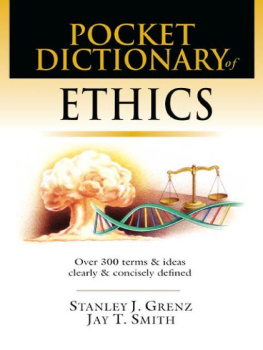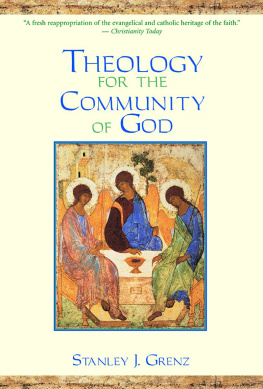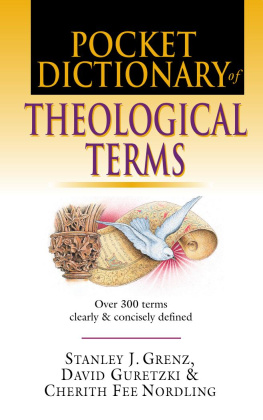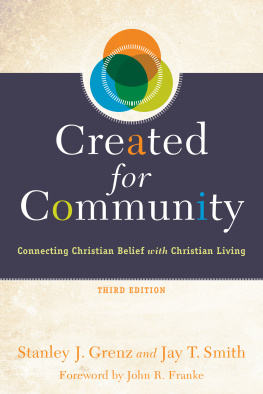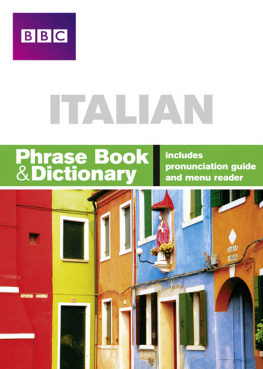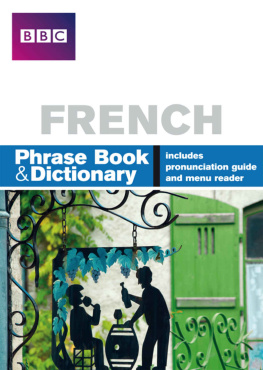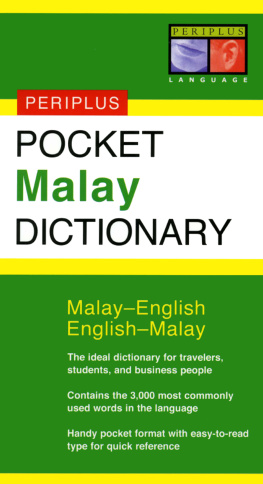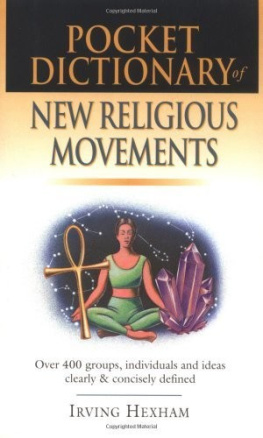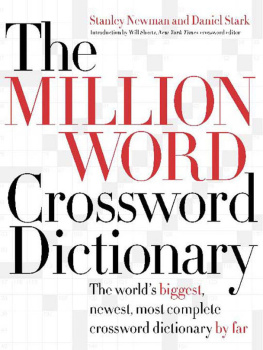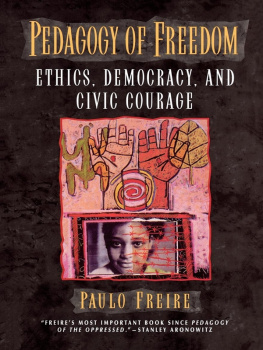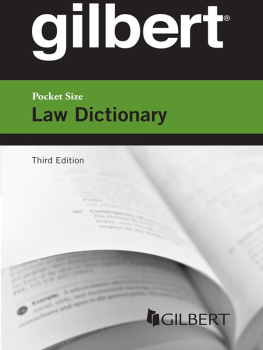Table of Contents
Pocket Reference Collection from IVP Academic
Pocket Dictionary for the Study of Biblical Hebrew by Todd J. Murphy
Pocket Dictionary for the Study of New Testament Greek by Matthew S. DeMoss
Pocket Dictionary of Apologetics & Philosophy of Religion by C. Stephen Evans
Pocket Dictionary of Biblical Studies by Arthur G. Patzia and Anthony J. Petrotta
Pocket Dictionary of Church History by Nathan P. Feldmeth
Pocket Dictionary of Ethics by Stanley J. Grenz and Jay T. Smith
Pocket Dictionary of New Religious Movements by Irving Hexham
Pocket Dictionary of North American Denominations by Drew Blankman and Todd Augustine
Pocket Dictionary of Theological Terms by Stanley J. Grenz, David Guretzki and Cherith Fee Nordling
Pocket Guide to World Religions by Winfried Corduan
Pocket Handbook of Christian Apologetics by Peter Kreeft and Ronald K. Tacelli
Pocket History of Evangelical Theology by Roger E. Olson
Pocket History of the Church by D. Jeffrey Bingham
Pocket History of Theology by Roger E. Olson and Adam C. English
InterVarsity Press
P.O. Box 1400, Downers Grove, IL 60515-1426
World Wide Web: www.ivpress.com
E-mail: email@ivpress.com
2003 by Stanley J. Grenz and Jay T. Smith
All rights reserved. No part of this book may be reproduced in any form without written permission from InterVarsity Press.
InterVarsity Press is the book-publishing division of InterVarsity Christian Fellowship/USA , a student movement active on campus at hundreds of universities, colleges and schools of nursing in the United States of America, and a member movement of the International Fellowship of Evangelical Students. For information about local and regional activities, write Public Relations Dept., InterVarsity Christian Fellowship/USA, 6400 Schroeder Rd., P.O. Box 7895, Madison, WI 53707-7895, or visit the IVCF website at .
All Scripture quotations, unless otherwise indicated, are taken from the Holy Bible, New International Version. NIV. Copyright 1973, 1978, 1984 by International Bible Society. Used by permission of Zondervan Publishing House. All rights reserved.
Cover design: Kathleen Lay Burrows
Cover image: Roberta Polfus
ISBN 978-0-8308-1468-8
Printed in the United States of America
InterVarsity Press is committed to protecting the environment and to the responsible use of natural resources. As a member of the Green Press Initiative we use recycled paper whenever possible. To learn more about the Green Press Initiative, visit .
Library of Congress Cataloging-in-Publication Data
Grenz, Stanley, 1950-Pocket dictionary of ethics / Stanley J. Grenz & Jay T. Smith. p. cm.
Includes bibliographical references.
ISBN 978-0-830-86704-2 (pbk.: alk. paper)
1. EthicsDictionaries. I. Smith, Jay T. II. Title.
BJ63.G74 2003
170.3dc21
2003008233
P 20 19 18 17 16 15 14 13 12 11 10 9 8 7 6 5 4 3 2
Y 23 22 21 20 19 18 17 16 15 14 13 12 11 10 09 08
Preface
People today seem to be quite willing to speak the language of ethics. This may be due in part to the growing sense that we are being swamped with questions that at their core are ethical. But people appear also to be increasingly aware that questions of ethics are not merely out there. On the contrary, we find ourselves bombarded with decisions about how we should live and what kind of persons we ought to be. And we realize that somehow what we do and who we are matters. Viewed from this perspective, we are all ethicists. This means that we are not given the luxury of asking, Do I want to be an ethicist? Rather, the crucial question is, What kind of ethicist am I?
Our ultimate goal in producing the Pocket Dictionary of Ethics is to assist you in becoming a good ethicist. We desire to contribute to this lofty goal by providing you with a tool for becoming a better-informed ethicist. To this end, what follows in these pages are short definitions or descriptions of some of the most important terms and names encountered in books and discussions in the broad field of ethics. These definitions are not exhaustive, of course, but are intended to provide a basic working knowledge of the central concepts bandied about in conversations about ethics. Rather than including concepts from a variety of religious and philosophical streams of thought, we have focused on the Greek, Western and Christian ethical traditions. We have also generally avoided terms that are limited to specialized subdisciplines, choosing instead concepts that frame the wider ethical discussion (including, we should forewarn you, one tongue-in-cheek entry). In this process, we have kept the number of entries dealing with individual ethicists to a minimum and have largely avoided twentieth- and twenty-first-century figures.
This little pocket dictionary is not meant to be read from cover to cover. Rather, it is intended to serve as a reference tool that you have on your desk as you read other books and essays on the topic. Nevertheless, you might consider reading through the book from a to z in order to gain a basic handle on the field of ethics in general. To facilitate its use as a reference tool, we have provided cross-references. An asterisk before a term or phrase indicates that it appears elsewhere in the book as a separate entry. See directs you to the entry where a term you have chosen is defined. See also indicates related entries in the pocket dictionary that provide additional information regarding the term you are exploring.
Finally, keep in mind that learning about ethics will not automatically result in your becoming a good ethicist. Knowledge must be appliedand, in the case of the quest to live ethically, applied under the direction of and with the empowerment of the Holy Spirit. Our prayer is that the Pocket Dictionary of Ethics might become a tool of the Spirit in effecting this greater goal in your life.
Stanley J. Grenz and Jay T. Smith
A
abortion. Any medical procedure that terminates the life of the human fetus prior to birth. Abortion loomed as one of the central ethical issues in the church and *society in the final four decades of the twentieth century. Connected to the question of abortion are such considerations as the *rights and welfare of the birth mother; the nature of *procreation and sexual activity; the value of unborn human life; and the interests of other parties, such as the father and other *family members. Some ethicists hold to one or the other of the two absolutist positions: abortion on demand or no abortion under any circumstances. Yet most of the ethical debate has centered on the question of the circumstances under which abortion might be deemed either morally permissible or the lesser of two evils (e.g., when the mothers life is endangered or in the case of rape). See also fetal research; life, right to.
absolute, absolutism. An ethical *principle or rule deemed universally obligatory, that is, binding on all persons and under all circumstances without exception. Ethical absolutism, in turn, is the theory that one or more ethical absolutes exist and can be discovered. Proponents of ethical absolutism differ among themselves regarding the source of such absolutes. Some suggest that they are rooted in the character of God and are given to humans by divine revelation. Others declare that moral absolutes are rooted in universal *human nature and are accessible through reason. See also nonconflicting absolutism; norm; universal moral judgments.



